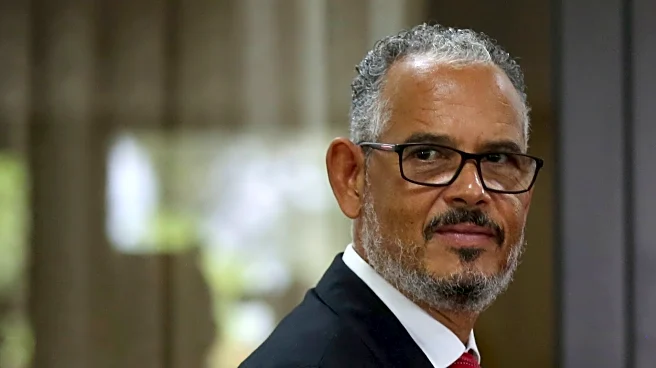What's Happening?
A study conducted by Etienne de Villers-Sidani and colleagues at McGill University has demonstrated that intense mental exercise can reverse aging effects in brain chemistry. The research focused on cognitive training's impact on acetylcholine levels,
a neurotransmitter associated with cognitive performance. Participants aged 65 and older engaged in mental exercises for 10 weeks, resulting in increased acetylcholine levels, effectively turning back the clock on brain aging by about 10 years.
Why It's Important?
The study provides evidence that cognitive training can lead to biological changes in the brain, offering a non-pharmacological approach to improving cognitive function in older adults. This has significant implications for addressing age-related cognitive decline and conditions like Alzheimer's disease. The findings suggest that mental exercise could be a viable strategy for maintaining cognitive health, potentially reducing healthcare costs and improving quality of life for the aging population.
What's Next?
The research may lead to increased interest in developing cognitive training programs tailored for older adults. As the study was funded by the National Institutes of Health, further exploration into the long-term benefits and applications of cognitive training is likely. The findings could influence public health policies, encouraging the integration of mental exercise into routine healthcare practices for older individuals.
Beyond the Headlines
The study raises questions about the accessibility and affordability of cognitive training programs, highlighting the need for widespread availability to maximize public health benefits. It also underscores the importance of continued research into non-drug interventions for cognitive health, potentially shifting the focus from medication to lifestyle-based approaches.
















